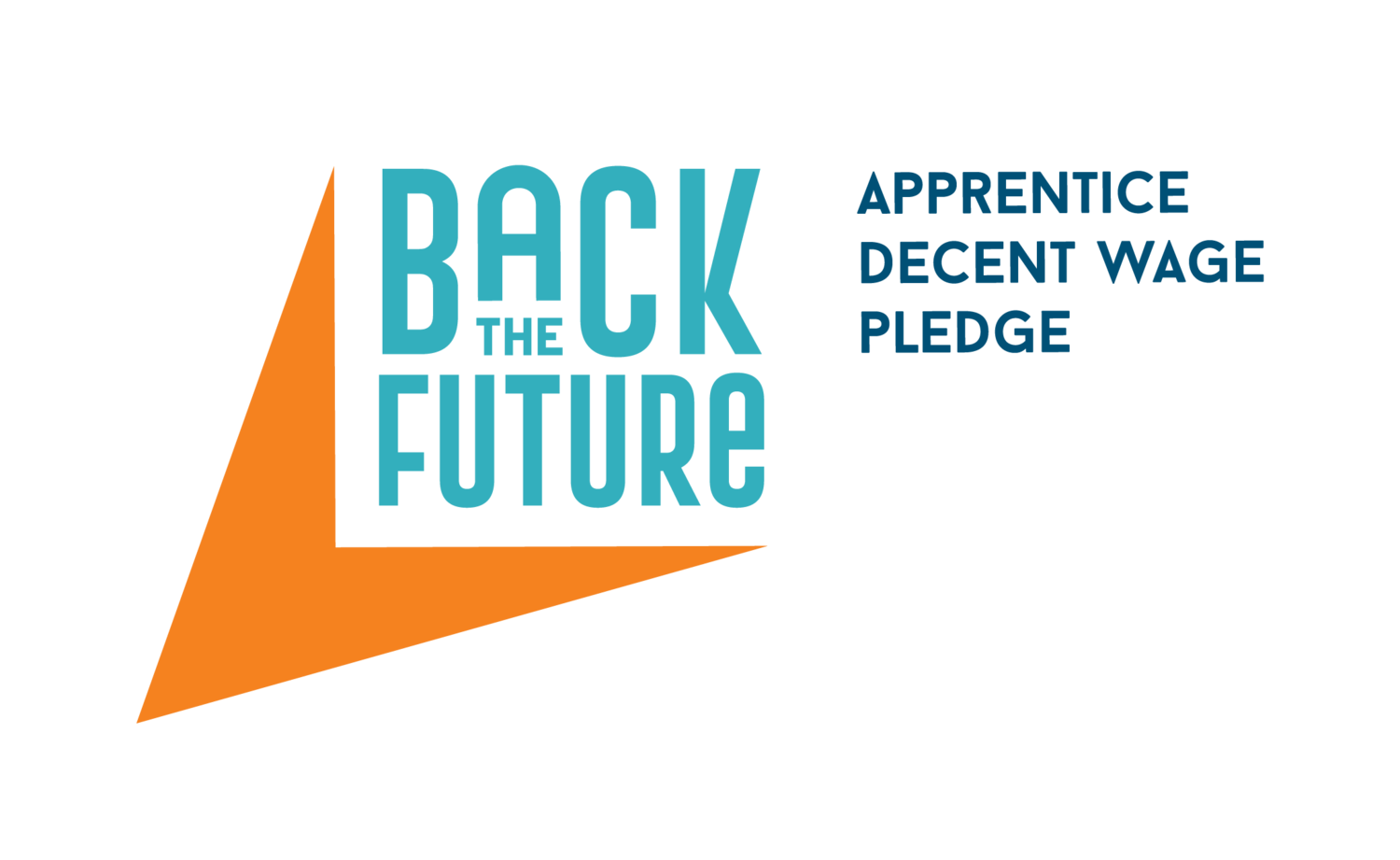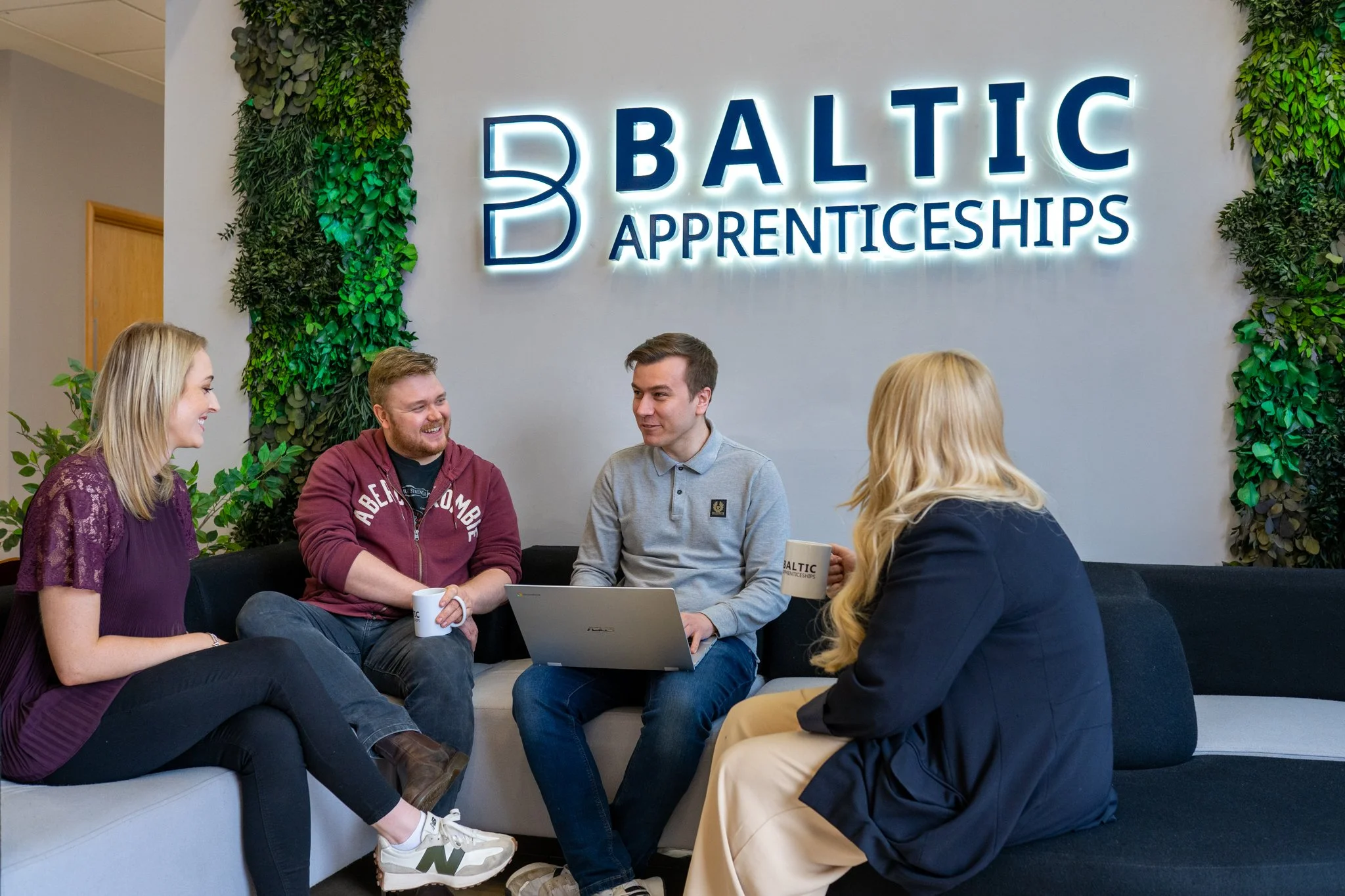
Case Study:
Baltic Apprenticeships

What does it really mean to Back the Future and does it matter?
In our first ever Decent Wage Pledge case study, we’re able to dive into the steps early adopters to the pledge, Baltic Apprenticeships have taken over the past 22 months and continue to take, to Back the Future for not only their current, but future apprentices too.
These practices will ensure fairer wages and adopt an inclusive approach to recruiting and retaining apprentices which will result in driving increases in quality candidates & apprenticeship completion rates.
Objectives
April 2022 - As a company, it has always been important to us to pay apprentices higher wages, so it was an honour to join the Decent Wage Pledge in April as we share a lot of common values.
September 2022 - Baltic committed to paying new internal apprentices a set, higher wage to encourage a higher calibre of talent and create a positive work culture. We quickly realised higher wages are a win-win for everyone, as there was a positive correlation between higher salaries, improved retention, and improved achievement rates, and we wanted to emulate this success we experienced internally with our employers and their apprentices.
Previously our sales team would informally discuss salary expectations with our employers, but ultimately, how much an employer wants to pay their apprentice is their decision.
April 2023 - the minimum wage for an apprentice is £5.28 an hour, and this is the same for all apprentices and doesn’t reflect specific industries or age bands. While our team would always advise employers to pay higher than this – they had little data to back up how this would impact the apprentices’ performance.
Implementation
August 2023 - We decided it was time to formalise a more sophisticated approach to recommending apprentice salaries. We analysed historical data to assign salary bands per age group and found that those on higher salaries, relative to their age, showed better retention and achievement grades.
Learners earning in the lower salary bands were twice as likely to leave for a new job or for mental health concerns, while learners earning in the appropriate salary band were twice as likely to achieve a Merit or Distinction.
We knew that implementing these higher salary bands would give significant benefits to both our apprentices and our employers. The data team communicated the report to the wider business, and conducted training sessions with our sales and recruitment teams so they understood the importance and meaning behind the change.
Our sales team previously had little data to support their argument for setting higher salaries with employers, but now they have solid foundations to have these conversations. They can now confidently communicate to our employers, that by paying your apprentice more, you will reap the benefits of increased retention and overall employee satisfaction.
Results
Since this rollout, we have already seen an increase in high-quality candidates applying for roles and a positive increase in retention.
November 2024 - We will have a true understanding of the impact on achievement rates, but, as with our historical data, we expect to see a positive correlation between higher salaries and achievement rates.
Theory in practice
One of our employers, which we will refer to as Company A, was offering national apprentice minimum wage and having trouble recruiting for their Data Analyst role. After interviewing several candidates, Company A finally found a candidate who was perfect for the role – they were skilled, driven, proactive, and personable.
This candidate was a career changer and was not satisfied with the salary offered. Despite wanting to work for Company A, they were already employed and could not sustain themselves on the salary offered. The candidate would have to miss out on this opportunity, and Company A would have to miss out on a quality candidate.
In conversations between our team members and Company A, it was made apparent that other apprenticeship vacancies in the area were significantly higher than theirs, and they could lose out on potentially great candidates if they were not competitive with their salary.
After discussions between the senior management team at Company A, it was agreed that they would match the candidate's current salary to ensure they could change roles comfortably. This is one of our more extreme cases, but to reflect the skills and potential of such a high calibre candidate, in this instance, they were offered a 90% increase from the original salary.
Since starting at Company A, the candidate has had a huge impact, with SMT confessing they ‘didn’t realise how much they needed them.’ The learner is set to complete their EPA in February 2024 and is on track to become a higher achiever and enter a full-time position at Company A.
A bit more about Baltic Apprenticeships
A national apprenticeship training provider focused on developing tech and digital skills, offering programmes in IT, Software Development, Data Analysis and Digital Marketing.
As an apprenticeship training provider, we connect employers and learners with effective apprenticeship programmes. Our mission is to accelerate careers through accessible, high-quality education that inspires life-long learning and personal growth. We practice what we preach, and understand the benefits apprentices bring to a business. We hire apprentices and upskill employees across all our departments, and our apprentices range from Business Administration, Learning Mentors, Digital Marketing, Data Analysis, IT Support, plus more.
If you found this case study useful, be sure to follow us to stay in the loop on our next case study as part of our National Apprenticeship week Decent Wage Pledge information resources.



